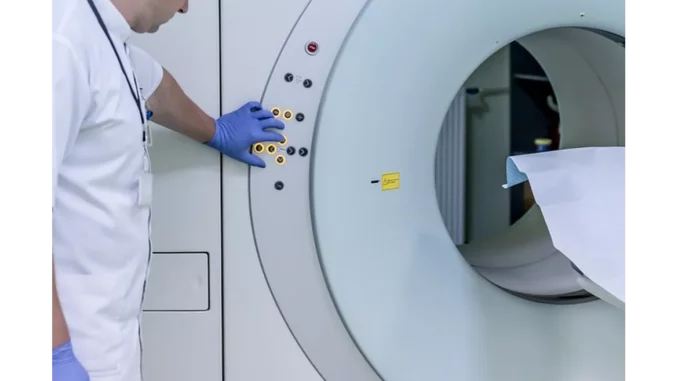
The healthcare landscape across the Asia Pacific region is on the brink of a transformative era, propelled by the strategic alliance between Royal Philips and Singapore General Hospital (SGH). This initiative heralds the establishment of an unprecedented Magnetic Resonance Imaging (MRI) Training Centre in Singapore, a pioneering effort aimed at bolstering medical imaging capabilities throughout the region. This collaboration extends far beyond mere technological advancement; it embodies a comprehensive strategy to confront pressing healthcare challenges, such as workforce shortages and the critical need for ongoing professional development.
In the realm of healthcare, partnerships between technological innovators and medical service providers are paramount. They act as vital channels for the exchange of knowledge, skills, and technology, which are indispensable for tackling the myriad challenges confronting the healthcare sector today. The alliance between Philips and SGH stands as a testament to this collaborative approach, concentrating on elevating the skill set of healthcare professionals not only in Singapore but throughout the Asia Pacific region. At a time when 71% of healthcare leaders in the region express anxiety over staff shortages causing delays in patient care, this partnership is both timely and significant. The newly established MRI Training Centre will function as an educational hub, equipping radiographers with cutting-edge skills and insights into MRI clinical practice. This initiative is poised to generate a positive ripple effect, enhancing patient care and raising healthcare delivery standards across the region.
A central goal of this collaboration is to bridge the skills gap in medical imaging. The Train-the-Trainer model employed by Philips is an innovative approach designed to empower selected radiographers from SGH to become trainers themselves. These trainers, imbued with advanced knowledge and expertise, will then disseminate this learning to other healthcare professionals, fostering a sustainable model of continuous education and skill enhancement. This method not only augments the competencies of individual radiographers but also promotes a culture of knowledge sharing and cooperation among healthcare institutions. Consequently, this ensures the widespread dissemination and application of advanced medical imaging technologies, ultimately leading to improved patient outcomes.
In the contemporary healthcare setting, digital health technologies are increasingly pivotal in transforming service delivery. They optimise workflows, enhance data connectivity, and furnish valuable insights that are crucial for patient-focused care. The MRI Training Centre in Singapore exemplifies how technology can be harnessed to elevate healthcare delivery. By serving as a reference site for best practices and practical operations, SGH will play a crucial role in setting new benchmarks for MRI clinical practice. This initiative resonates with Philips’ vision of providing superior care for a broader demographic by elevating care delivery standards. It further underscores the significance of strategic collaborations in maximising the potential of available innovations to address healthcare system challenges.
The establishment of the MRI Training Centre marks a significant milestone in the ongoing journey to enhance healthcare delivery across the Asia Pacific region. It signifies a shift towards a more collaborative and integrated healthcare approach, where technology and human expertise converge to tackle complex issues. As healthcare systems continue to evolve, such partnerships will be pivotal in ensuring that healthcare professionals are equipped with the requisite skills and knowledge to deliver exemplary care. The partnership between Philips and SGH serves as a stellar example of the possibilities that emerge when organisations with a shared vision unite to address mutual challenges.
The MRI Training Centre in Singapore represents more than just a facility; it stands as a beacon of optimism for the future of healthcare in the Asia Pacific region. It symbolises a steadfast commitment to continuous learning, innovation, and collaboration—elements that are vital for advancing medical imaging capabilities and enhancing patient care. This initiative encapsulates the essence of a modern healthcare ecosystem that prioritises both technological advancement and the development of human capital, thereby paving the way for a healthier future for all.


Be the first to comment